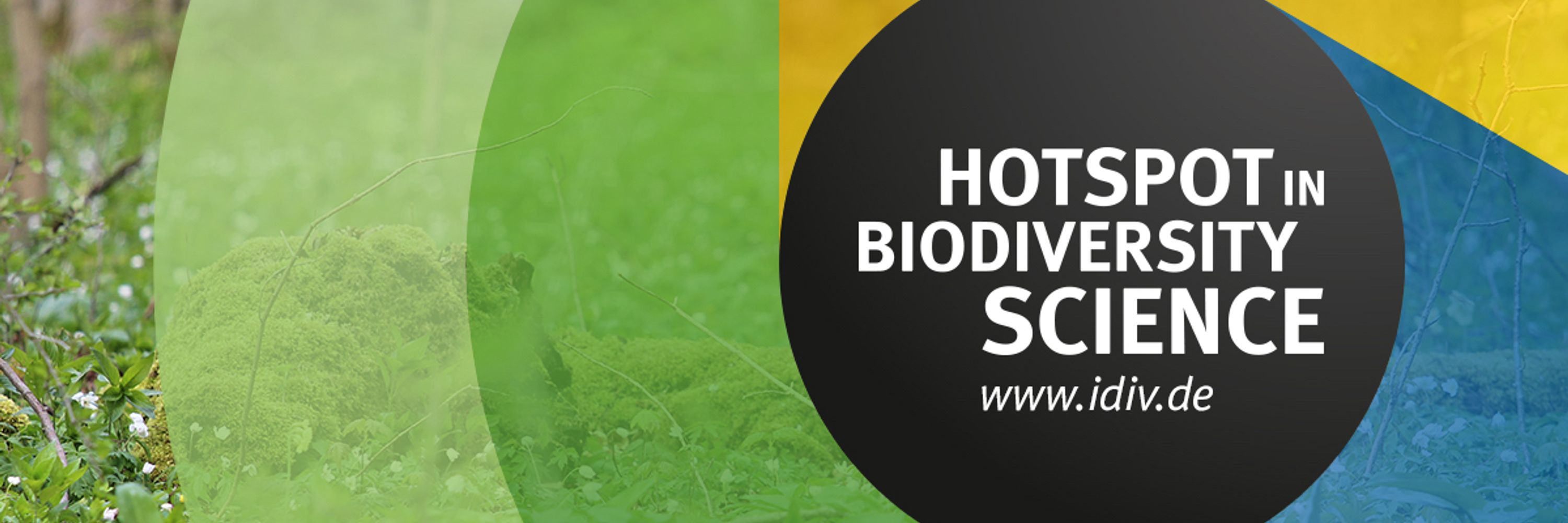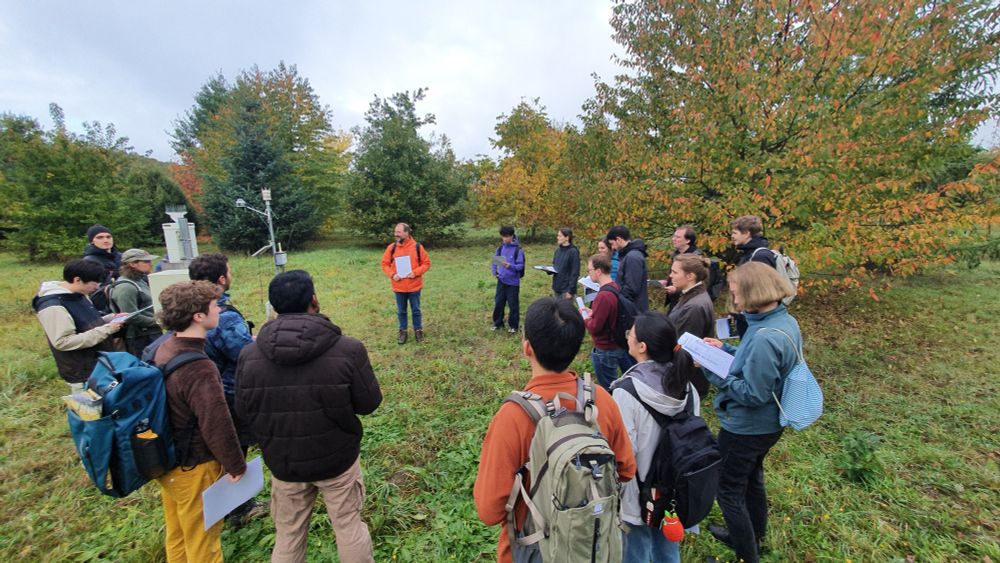

www.idiv.de/career/job-o...

www.idiv.de/career/job-o...


💬 “It’s not something you can take literally in the sense that it actually gives you a boundary. It is a warning sign. It is a cry for action.”
🎧 Listen: insidebiodiversity.podigee.io

💬 “It’s not something you can take literally in the sense that it actually gives you a boundary. It is a warning sign. It is a cry for action.”
🎧 Listen: insidebiodiversity.podigee.io
➡️ www.uni-jena.de/en/372185/fe...

➡️ www.uni-jena.de/en/372185/fe...
Apart from sharing our progress, we hosted a session on extreme events with guest speakers @sebastian-sippel.bsky.social & @miguelmahecha.bsky.social
Thanks for the insightful talks & discussion!

Apart from sharing our progress, we hosted a session on extreme events with guest speakers @sebastian-sippel.bsky.social & @miguelmahecha.bsky.social
Thanks for the insightful talks & discussion!
💬 “Having a boundary… will always lead to the complete use of that space.”
🎧 Hear more on #InsideBiodiversity: insidebiodiversity.podigee.io
💬 “Having a boundary… will always lead to the complete use of that space.”
🎧 Hear more on #InsideBiodiversity: insidebiodiversity.podigee.io



www.idiv.de/diverse-fore...

www.idiv.de/diverse-fore...


www.idiv.de/non-native-p...

www.idiv.de/non-native-p...
On #InsideBiodiversity, Prof. Helmut Hillebrand explains how small shifts can build up over time and space. 💬 “Even small environmental changes already impact the system… and accumulate.”
🎧 Listen here: insidebiodiversity.podigee.io

On #InsideBiodiversity, Prof. Helmut Hillebrand explains how small shifts can build up over time and space. 💬 “Even small environmental changes already impact the system… and accumulate.”
🎧 Listen here: insidebiodiversity.podigee.io
doi.org/10.1016/j.bi...
▶️Native richness limits invaders, but effect weakens at larger scales
▶️Old aliens respond to climate & disturbance🌧️
▶️Neophytes & invasives thrive with roads, urban & croplands 🚗
#sCaleGrassDiv @idiv-research.bsky.social

doi.org/10.1016/j.bi...
▶️Native richness limits invaders, but effect weakens at larger scales
▶️Old aliens respond to climate & disturbance🌧️
▶️Neophytes & invasives thrive with roads, urban & croplands 🚗
#sCaleGrassDiv @idiv-research.bsky.social
Guest Helmut Hillebrand talks about tipping points and planetary boundaries.
💬 “If you only retrospectively can say, ‘Oh, now we have crossed it,’ then of course it’s rather useless.”
Listen and subscribe now: insidebiodiversity.podigee.io
Guest Helmut Hillebrand talks about tipping points and planetary boundaries.
💬 “If you only retrospectively can say, ‘Oh, now we have crossed it,’ then of course it’s rather useless.”
Listen and subscribe now: insidebiodiversity.podigee.io
🎧 Tune in for the science and politics behind thresholds, regime shifts, and planetary boundaries: insidebiodiversity.podigee.io

🎧 Tune in for the science and politics behind thresholds, regime shifts, and planetary boundaries: insidebiodiversity.podigee.io


🌍 What does “non-native” really mean in a world shaped by movement?
🎧 Listen in: insidebiodiversity.podigee.io
🌍 What does “non-native” really mean in a world shaped by movement?
🎧 Listen in: insidebiodiversity.podigee.io

Thanks for listening, sharing, and subscribing! And do get in touch and let us know: what topics do you want us to dive into? insidebiodiversity.podigee.io

Thanks for listening, sharing, and subscribing! And do get in touch and let us know: what topics do you want us to dive into? insidebiodiversity.podigee.io
➡️ www.uni-jena.de/en/357808/ge...

➡️ www.uni-jena.de/en/357808/ge...

